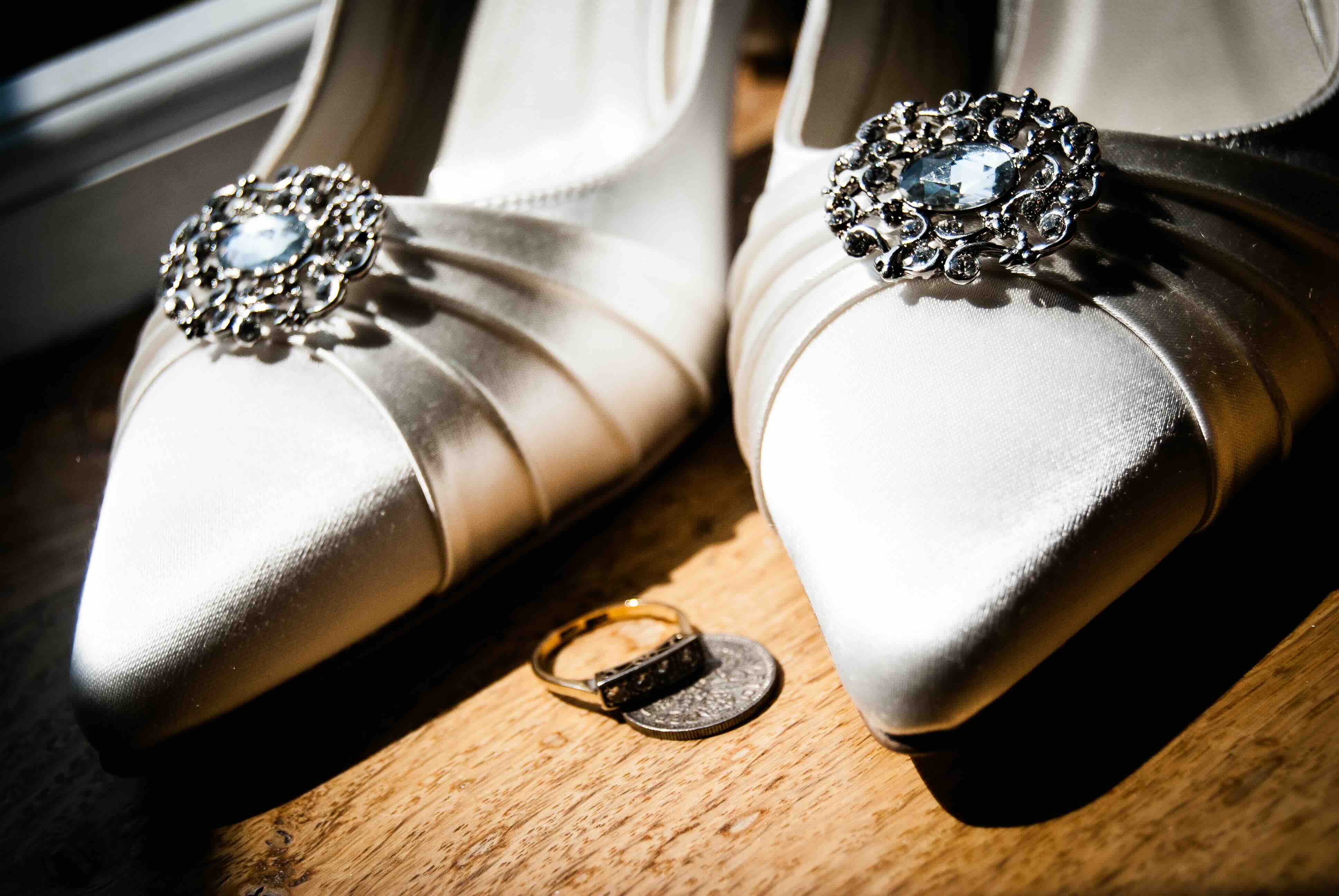Apple Pay vs Samsung Pay: How do they compare?
Check out our full comparison of Apple Pay vs Samsung Pay in the UK, to help you choose the right digital wallet for you.

Money and Marriage often go hand in hand. For the couple to be, but also their guests.
If you are anything like me, you are reaching an age where instead of the usual Saturday meme, friends hit you up with wedding invitations. Through email!
And the forever probing question when it comes to weddings is: what is an acceptable gift? Do they prefer money or a vacuum cleaner?
If it's a Cypriot wedding am I then expected to pin banknotes on the married couples’ clothes while they dance? (what comes next, smashing plates on the dance floor?!).
My point being, as a guest at a wedding, there are certain money customs you should be aware of, especially with destination weddings on the rise.
Somewhere in the crossovers of tradition and pop culture, rests one of the most popular wedding sayings: "Something Olde, Something New, Something Borrowed, Something Blue, A Sixpence in your Shoe.”
I bet you didn’t know that last part! But indeed. When a couple gets married, people will wish them all kinds of things including happiness, health, and of course, money.
This is exactly what the sixpence in the shoe symbolises. While the tradition has fallen out of fashion for most Brits, and sixpence doesn’t exist anymore anyway, it used to be that the father of the bride would place a sixpence in the shoe as a way of wishing the couple financial stability and luck.
While the sixpence was decommissioned in 1980, for those who still want to abide by traditions they can try to get a sixpence, or if not then they substitute it with a penny.
So if you see a bride struggling to walk down the aisle, you know it’s coins making already uncomfortable shoes even more unbearable.

I promise, it’s not as strange as it sounds and no, it is not a dance ritual in the hopes of raining money from the sky.
Popular in many different countries and cultures, from Cyprus, to Greece, Canada, Portugal and Cuba, among others, the so-called “Money Dance” takes on different forms according to which side of the pond you find yourself in.
In Greece and Cyprus, the bride dances while guests pin banknotes onto her dress (I hope the bride is not too attached to the wedding dress).
In French-Canadian ceremonies, the money dance involves brightly coloured socks and the couple’s unmarried siblings dancing around while guests throw money at them. This money is then presented to the newlyweds as a gift.
In Portugal, you ask? Things are a little different over there. This money dance involves no dress, but rather it is the shoe that is passed around for guests to place money inside.
Yes, I know, destination weddings sound fun until you have to withdraw cash in different currencies and pin it on the bride’s dress. The stress!
Thankfully, with Wise you can exchange money into 40+ currencies. Now the only thing you have to worry about is not ripping the dress while you pin the money - no pressure!
Knots are tied and ties are cut over in Spain.
The sangria might be flowing, but you know what else is being passed around during wedding ceremonies in Spain? The groom’s tie.
It is customary for the groom’s friends to cut up the tie and pass the pieces to guests who “buy” them, giving the money to the new couple.
I told you, cash is of the essence at weddings. You never know if you will need to purchase a piece of the groom’s tie. It’s a good thing you can withdraw money using your Wise card at ATMs around the world – just remember, some ATMs may have additional charges and you should always withdraw in the local currency!
And we’re back at my initial question: to gift or to envelope?
Some couples compile a list of house appliances they need for building their new life together and send it off to their guests.
This is beneficial to all, as it helps both the couple receive what they need, and the guests don’t go buying gifts blindly.
However, in a lot of cultures it is highly uncommon for guests to purchase gifts. Instead, money is placed within envelopes and given to the couple.
Such is the custom in Japan. The amount of money guests place in the envelope varies, but it is usually determined by how closely related to the couple they are and the social status of the guest.
This is customary in other countries too – by giving an envelope of money guests are essentially contributing to covering the costs of the wedding.
Weddings are joyful occasions and while I haven’t reached the level of having 27 dresses (movie reference anyone?) I do love attending the ceremonies.
It used to be that I was tagging along with my parents but, as I get older, an invite just for me means I need to consider wedding customs and gifts.
Together with picking out shoes and dresses, I also need to make sure I have access to the currency of the country the wedding is held in (yes, destination weddings are back in fashion - and so are destination stag and hen dos, which we looked into here).
Therefore, it would be Wise of me to have an account with access to multiple currencies. Just in case I need to pin money to a wedding dress or buy a groom’s tie.
Written by Eleni Socratous
*Please see terms of use and product availability for your region or visit Wise fees and pricing for the most up to date pricing and fee information.
This publication is provided for general information purposes and does not constitute legal, tax or other professional advice from Wise Payments Limited or its subsidiaries and its affiliates, and it is not intended as a substitute for obtaining advice from a financial advisor or any other professional.
We make no representations, warranties or guarantees, whether expressed or implied, that the content in the publication is accurate, complete or up to date.

Check out our full comparison of Apple Pay vs Samsung Pay in the UK, to help you choose the right digital wallet for you.

Read our helpful guide to account-to-account (A2A) payments, including how they work, how long they take and the benefits.

Want to transfer a balance between credit cards? Read our guide on Aqua balance transfers, including fees and how long it takes.

Read our guide to learn how to withdraw money from a FairFX card and understand the related fees.

Find out what exchange rate Currensea uses for card payments, ATM withdrawals and money transfers here in our handy guide.

Compare Currensea vs. Wise in our comprehensive UK guide, covering fees, features, travel cards, exchange rates and more.